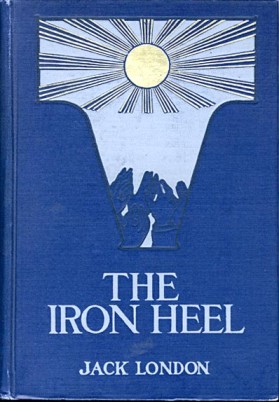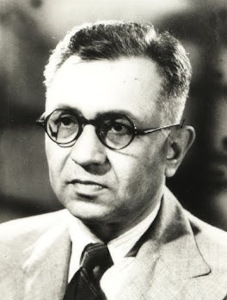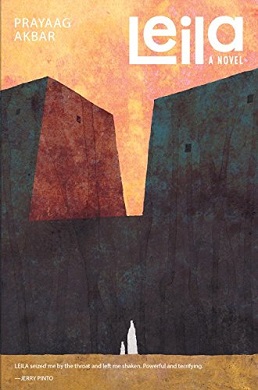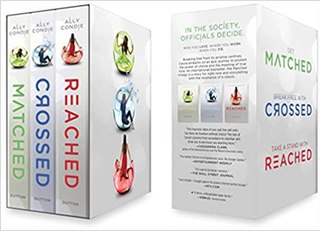Plot summary
While recovering from his addictions, Paracha spent time rearranging these notes using the cut-up method and surrealist automatism.
He then turned it all into a work of fiction in which a heroin addict narrates his story set in future Pakistan and India that have turned into capitalist and theistic dystopias.
He is a traveler who is always moving up and down both countries looking for drugs and in the process having hallucinatory dialogues with a Pakistani cleric/Islamic extremist (called in the book "The Mufti"), a group of Hindu fundamentalists (called "The pundits"), a group of young neoliberals (referred to as "the fun young people" and the "polite voids"), and an aging Indian Christian (called the "Holy Father").
There are also many other characters, but much of the story revolves around these main characters as Paracha constructs his dystopia in which capitalism and organized religion have been fused together as a new totalitarian system.
Acidity makes a clear comment this way on the rapid economic, political and social changes taking place in India and Pakistan, especially after the end of the Cold War.

Cyberpunk is a subgenre of science fiction in a dystopian futuristic setting said to focus on a combination of "low-life and high tech". It features futuristic technological and scientific achievements, such as artificial intelligence and cyberware, juxtaposed with societal collapse, dystopia or decay. Much of cyberpunk is rooted in the New Wave science fiction movement of the 1960s and 1970s, when writers like Philip K. Dick, Michael Moorcock, Roger Zelazny, John Brunner, J. G. Ballard, Philip José Farmer and Harlan Ellison examined the impact of technology, drug culture, and the sexual revolution while avoiding the utopian tendencies of earlier science fiction.
Feminist science fiction is a subgenre of science fiction focused on such feminist themes as: gender inequality, sexuality, race, economics, reproduction, and environment. Feminist SF is political because of its tendency to critique the dominant culture. Some of the most notable feminist science fiction works have illustrated these themes using utopias to explore a society in which gender differences or gender power imbalances do not exist, or dystopias to explore worlds in which gender inequalities are intensified, thus asserting a need for feminist work to continue.
Science fiction and fantasy serve as important vehicles for feminist thought, particularly as bridges between theory and practice. No other genres so actively invite representations of the ultimate goals of feminism: worlds free of sexism, worlds in which women's contributions are recognized and valued, worlds that explore the diversity of women's desire and sexuality, and worlds that move beyond gender.
Utopian and dystopian fiction are subgenres of speculative fiction that explore social and political structures. Utopian fiction portrays a setting that agrees with the author's ethos, having various attributes of another reality intended to appeal to readers. Dystopian fiction offers the opposite: the portrayal of a setting that completely disagrees with the author's ethos. Some novels combine both genres, often as a metaphor for the different directions humanity can take depending on its choices, ending up with one of two possible futures. Both utopias and dystopias are commonly found in science fiction and other types of speculative fiction.

The Giver is a 1993 American young adult dystopian novel written by Lois Lowry and is set in a society which at first appears to be utopian but is revealed to be dystopian as the story progresses.

In the Indian subcontinent, hijra are transgender, intersex, or eunuch people who live in communities that follow a kinship system known as the guru-chela system. They are also known as aravani and aruvani, and in Pakistan, khawaja sira.

The Iron Heel is a dystopian and political novel in the form of science fiction by American writer Jack London, first published in 1908.
Bina Shah is a Pakistani writer, columnist and blogger living in Karachi.

Indian pop music, also known as I-pop or Indi-pop, refers to pop music produced in India that is independent from filmi soundtracks for Indian cinema. Indian pop is closely linked to Bollywood, Tollywood, Pollywood, Kollywood and the Asian Underground scene of the United Kingdom. The variety of South Asian music from different countries are generally known as Desi music.
Chowk.com was a website with a focus on the current affairs, politics and cultural aspects of India and Pakistan. Its stated goal is to provoke readers go beyond soundbites and uncover the truth, however uncomfortable. It was also a magazine that aimed to promote discourse between people of the subcontinent on various issues which affected their lives. The site appeared to become stale in March 2012.

Sharif Hussain, who used the pseudonym Nasīm Hijāzī, was an Urdu novelist.
Music '89 was the first ever all pop music stage-show to be aired on Pakistan TV.
The genre of science fiction has been prevalent in the Indian film industry since the second half of the 20th century. Beginning in 1952, the English-Tamil film Kaadu was made, which was an Indian-American co-production. The 1963 Tamil film Kalai Arasi, 1965 Telugu film Dorikithe Dongalu, and 1967 Hindi film Chand Par Chadayee also have science fiction in their storyline. The Alien was a science fiction film under production in the late 1960s which was eventually cancelled. The film was being directed by Bengali Indian director Satyajit Ray and produced by Hollywood studio Columbia Pictures. The script was written by Ray in 1967, based on "Bankubabur Bandhu", a Bengali story he had written in 1962 for Sandesh, the Ray family magazine.

A dystopia, also called a cacotopia or anti-utopia, is a community or society that is extremely bad or frightening. It is often treated as an antonym of utopia, a term that was coined by Thomas More and figures as the title of his best known work, published in 1516, which created a blueprint for an ideal society with minimal crime, violence, and poverty. The relationship between utopia and dystopia is in actuality, not one of simple opposition, as many dystopias claim to be utopias and vice versa.

Zindagi Gulzar Hai is a Pakistani television series directed by Sultana Siddiqui, produced by Momina Duraid under the banner Moomal Productions, which was first broadcast on Hum TV. Based on the novel of the same name by Umera Ahmad, who also wrote the screenplay, it originally aired from 30 November 2012, to 24 May 2013, in Pakistan. The story revolves around two people, opposite in thoughts and financial status, and has a strong female protagonist, contributing to its popularity amongst women.

Syed Imtiaz Ali Taj was a Pakistani dramatist who wrote in the Urdu language. He is best known for his 1922 play Anarkali, based on the life of Anarkali, that was staged hundreds of times and was adapted for feature films in India and Pakistan, including the Indian film Mughal-e-Azam (1960).

Cat Country is a dystopian satirical novel by Chinese writer Lao She (1899–1966), first published in 1933. It has been translated into English, French, German, Hungarian, Japanese and Russian.

Leila is a 2017 Indian dystopian novel written by Prayaag Akbar. Set in the 2040s, the story follows Shalini, who tries to find her missing daughter Leila in a totalitarian regime. It was published by Simon & Schuster in several formats worldwide on 20 April 2017 and received a positive critical reception. It is also available as an audiobook narrated by Tania Rodriguez.

The Marrow Thieves is a young adult dystopian novel by Métis Canadian writer Cherie Dimaline, published on September 1, 2017, by Cormorant Books through its Dancing Cat Books imprint.

The Matchedtrilogy is a young adult, dystopian fiction series written by American author Ally Condie, set in a centrally governed society. The Society seems to be formed after an apocalyptical global warming event. The novel Matched was published by Dutton Penguin in November 2010 and reached number three on the Children's Chapter Books bestseller list in January. Previously working with a small, Utah-based publisher, Condie took her manuscript to Penguin Random House, after being advised to do so from her director at Deseret Book. This helped the novel reach a national audience. The Matched novel has been optioned to the Walt Disney Company for a film adaptation. Foreign rights were sold to 30 countries before publication. The second book, Crossed, was published in November 2011, and Reached, published November 2012, completed the trilogy.












